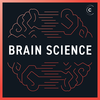Developing a mental framework
The quality of your thinking depends on your mental framework. To become a better thinker you need to have an understanding of this mental framework and how you view the world. But, what exactly is a mental framework? How have we all been programmed throughout our lives? In what ways have you been programed that you like, don’t like, or want to change? Join us as we explore and examine the key components of developing a mental framework.

